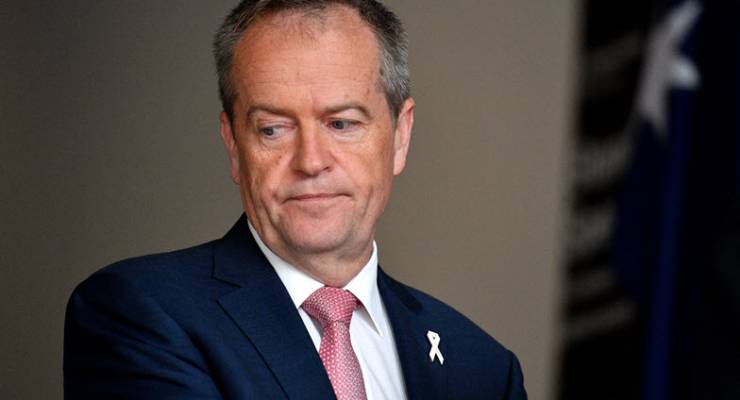
Labor’s backing for the secretly negotiated Trans-Pacific Partnership trade deal should sound an alarm for anyone hoping the election of Bill Shorten will seriously address the economic causes of electoral discontent. After Labor’s prolonged insistence that it is committed to addressing inequality and wage stagnation, signing up to another falsely named “free” trade agreement should tell voters how real the opposition’s commitment really is.
As even its advocates in the business sector admitted last week, the revised Trump-less TPP will deliver negligible economic benefits for Australia. Business groups’ own modelling found that it would deliver, after a decade, less than two days’ worth of extra national income per year. Despite the hyping of benefits for Australian exporters, it also found exports would only increase by the same amount as imports.
But there will be impacts for Australian workers. As has been noted about the deal, “TPP 11 waives labour market testing for ‘contractual service suppliers’ for six signatory countries. This will mean jobs in Australia will be able to be filled by workers from Canada, Peru, Brunei, Mexico, Malaysia and Vietnam without being offered to Australians first.” Who pointed that out? Why, Labor, in its Joint Standing Committee on Treaties report on the deal just last month.
“More than 450 professions could currently be covered by the term ‘contractual service supplier’ and includes electricians, plumbers, carpenters and nurses. No other country has provided Australia with such generous reciprocal visa rights and it is unclear why such concessions were given by this government.”
Still, that concern has been waved away by Labor’s shadow trade minister Jason Clare, along with concerns about the Investor-State Dispute Settlement (ISDS) framework that, according to Labor, “leaves Australia vulnerable to lengthy legal disputes with foreign-owned corporations. It was for this reason that ISDS provisions were excluded by the former Labor Government in early negotiations of the TPP. The former Howard government shared Labor’s concerns and did not include ISDS in Australia’s Free Trade Agreement with the United States.”
As Labor MPs and senators noted, the Productivity Commission has criticised ISDS provisions a number of times, explaining that there’s no evidence that they actually enhance investment or address market failure. But you don’t have to take the PC’s word for it; then-High Court chief justice Robert French made two speeches raising concerns about ISDS, noting “[a]rbitral tribunals set up under ISDS provisions are not courts. Nor are they required to act like courts. Yet their decisions may include awards which significantly impact on national economies and on regulatory systems within nation states. Questions have been raised about the consistency, openness and impartiality of decisions made in ISDS arbitrations.”
So widespread is the loathing of ISDS that the provisions in the current NAFTA agreement have come under repeated attack from across the political spectrum in the US as the Trump administration tries to renegotiate NAFTA.
The opening of borders to foreign workers, pushing down further already stagnant wages, and the diminution of sovereignty in favour of multinationals, are two classic examples of neoliberal policymaking and two red-hot issues in the disenchantment with politicians across the West. Labor recognised concerns about ISDS in 2016 when its election platform committed that “a Shorten Labor Government will not agree to Investor-State Dispute Settlement (ISDS) provisions in new trade agreements. A Labor Government will seek to remove or reform these provisions in existing trade agreements, through negotiation with Australia’s trading partners.”
Despite having ample policy and political basis for opposing the TPP, Labor now says it will wave it through despite knowing that, working with crossbenchers like Centre Alliance, and the Greens, they could knock it back or try to fix it.
Bizarrely, Clare insists that Labor policy hasn’t changed. “A Shorten Labor Government will introduce laws that prohibit governments from signing trade agreements that waive labour market testing or include ISDS provisions,” he said yesterday — after having secured shadow cabinet and caucus agreement to support a trade agreement that waives Labor market testing and includes ISDS provisions.
Hypocrisy, somersaults, doubletalk and ignoring evidence. Is it any wonder voters are so disenchanted with the major parties and increasingly willing to look to minor parties instead?








Crikey is committed to hosting lively discussions. Help us keep the conversation useful, interesting and welcoming. We aim to publish comments quickly in the interest of promoting robust conversation, but we’re a small team and we deploy filters to protect against legal risk. Occasionally your comment may be held up while we review, but we’re working as fast as we can to keep the conversation rolling.
The Crikey comment section is members-only content. Please subscribe to leave a comment.
The Crikey comment section is members-only content. Please login to leave a comment.